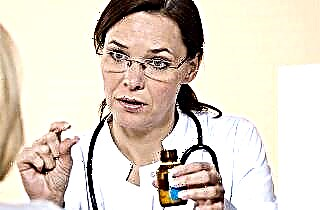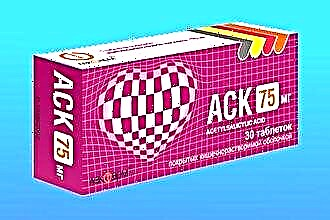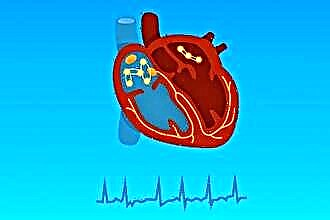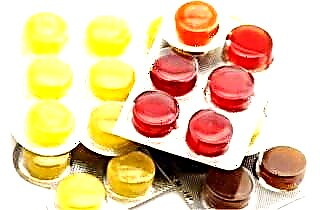Angina (tonsillitis) belongs to the group of contagious infectious diseases. As a rule, it is caused by bacterial pathogens - streptococci and staphylococci. The pathogenic microflora concentrates on the palatine, as well as the pharyngeal tonsils and gradually begins to poison the body with its waste products. In other words, intoxication occurs. For this reason, the body temperature rises, chills, severe sore throat and other clinical symptoms appear.
What antibiotics to take for angina in adults, and are they needed at all? Of course, antibacterial drugs are indispensable in this case. No aerosols of local exposure can completely destroy the pathogens. The antibiotic for sore throat is selected taking into account its type, and the optimal dosage is based on the current form of the disease (acute or chronic).
Angina bacterial, fungal and chronic
 As clinical practice shows, it is bacterial tonsillitis that most often occurs. In 20 percent of all cases, it is caused by streptococcus paired with staphylococcus. In 80 percent, hemolytic streptococcus becomes the cause of inflammatory processes. Much less often, angina is a direct consequence of chlamydia, gonorrhea and some other ailments. Therefore, before deciding which antibiotic is better for angina, the root cause of the disease should be determined.
As clinical practice shows, it is bacterial tonsillitis that most often occurs. In 20 percent of all cases, it is caused by streptococcus paired with staphylococcus. In 80 percent, hemolytic streptococcus becomes the cause of inflammatory processes. Much less often, angina is a direct consequence of chlamydia, gonorrhea and some other ailments. Therefore, before deciding which antibiotic is better for angina, the root cause of the disease should be determined.
Purulent-type bacterial sore throats, as a rule, are diagnosed in children with reduced immunity. In this case, they speak of follicular or lacunar tonsillitis. Antibiotics in the treatment of angina should be used deliberately and only after the following characteristic symptoms are detected:
- increased body temperature (up to 40 degrees);
- absence of rhinitis (runny nose), as well as cough attacks;
- severe sore throat (discomfort when swallowing);
- aching joints and muscles;
- general weakness throughout the body;
- headache;
- enlargement of the palatine and pharyngeal tonsils;
- swelling of the oropharyngeal mucosa and so on.
As for the fungal sore throats, they are caused by yeast-like fungi. Most often, such microorganisms begin to develop actively with bacterial sore throat. This can be the result of prolonged use of antibiotics and a significant decrease in the body's immune forces (including local immunity in the oral cavity).
The bacterial and fungal varieties of tonsillitis are distinguished by the intensity of the manifestation of symptoms. With fungal sore throat, the signs of intoxication will be weak, and the body temperature may remain normal or rise slightly.
As for the chronic form. Acute angina with a variety and intensity of its symptoms can very quickly transform into a chronic one. In most cases, this happens when the patient abruptly stops drinking the antibacterial medication. Antibiotics for the treatment of angina should always be used until the completion of the rehabilitation course. Otherwise, the pathogenic microflora becomes resistant (resistant) in relation to their active substances.
Features of use
Antibiotics for angina in adults and children should be prescribed only after the bacterial culture has been carried out, the type of pathogenic microorganisms and their sensitivity to the active substances of the drugs have been identified. There are some more features:
 Treatment of angina with antibiotics must be done very carefully. Indeed, some patients may have an intolerance to a certain component of the drug. In addition, you need to know with which medications an antibiotic from a particular group is combined.
Treatment of angina with antibiotics must be done very carefully. Indeed, some patients may have an intolerance to a certain component of the drug. In addition, you need to know with which medications an antibiotic from a particular group is combined.- Most often, the chronic form of sore throat develops in adults, since they are less closely monitoring the performance of the rehabilitation course. Children are always treated under the supervision of their parents and most often they are insured against this.
- It is allowed to use a local antibiotic for angina. It acts directly on the affected areas of the mucous membrane. In this case, we are talking about aerosols, which include active antibacterial substances. Such drugs are not independent, they are prescribed in combination with other drugs.
- Acute angina is treated with antibiotics. This is an axiom that requires no proof. However, chronic forms of such an ailment need to be treated comprehensively, not only with antibiotics. That is, in addition to antibacterial agents, immunomodulating and some other drugs are also prescribed.
- Remember that antibiotic side effects in children will always be more pronounced than in adults. This is due to the physiological characteristics of the child's body. Most of the known groups of antibacterial drugs lead to sleep disturbances, digestion, and in some cases affect the work of some internal organs (liver, kidneys).
What are the best antibiotics for angina? To answer this question, you need to know which groups of antibacterial agents are most often used in the treatment of acute and chronic tonsillitis.
Penicillins
How to treat angina if it is caused by streptococcal pathogens? For these purposes, drugs from the penicillin group are used. If the treatment is carried out in a hospital setting, drugs are injected into the body mainly in the form of injections. At home, pills are prescribed.
 To combat streptococci, drugs based on phenoxymectylpenicillin, a natural antibiotic, have proven themselves to be excellent. Their advantages are based not only on an effective effect on pathogenic microflora, but also on a narrow spectrum of action. This means that such funds have a minimal effect on the gastrointestinal system.
To combat streptococci, drugs based on phenoxymectylpenicillin, a natural antibiotic, have proven themselves to be excellent. Their advantages are based not only on an effective effect on pathogenic microflora, but also on a narrow spectrum of action. This means that such funds have a minimal effect on the gastrointestinal system.
But, unfortunately, there are downsides. And the main thing is the high probability of allergy to the active substance among patients. In this case, you can take "Amoxicillin". It actively destroys bacterial agents and at the same time is extremely slowly excreted from the body, concentrating in the place of concentration of pathogenic microflora.
It is possible to treat angina with antibiotics "Solutab" and "Flemoxin" for both children and adults. Moreover, they are used even during pregnancy (but not in the first trimester). The best representatives of the penicillin group are the following:
- "Amoxiclav";
- Augmentin;
- "Panklav";
- "Amoxicillin".
As for especially severe forms of tonsillitis, which are accompanied by severe inflammation and fever, they are treated differently. For example, in addition to "Amoxicillin", clavulanic acid is introduced into the course of treatment. It prevents the rapid destruction of the antibiotic by gastric enzymes and therefore enhances the effect.
Penicillins cause allergic reactions in 6 percent of patients. Therefore, doctors often use another group of antibacterial drugs - macrolides.
Macrolides
The safest and most effective antibiotics for angina from the macrolide group are:
- "Midecamycin";
- Roxithromycin;
- "Azithromycin";
- Josamycin and others.
 This group affects not only streptococci, but also staphylococci, anaerobic bacteria, intracellular and some other parasites. One tablet of "Azithromycin" can significantly slow down the multiplication of bacterial agents. Quite good analogues of such a medicine are Zitrolide, Sumamed and Azitrox.
This group affects not only streptococci, but also staphylococci, anaerobic bacteria, intracellular and some other parasites. One tablet of "Azithromycin" can significantly slow down the multiplication of bacterial agents. Quite good analogues of such a medicine are Zitrolide, Sumamed and Azitrox.
The above antibiotics against tonsillitis are characterized by prolonged action.Therefore, they are considered an excellent option for those who, for one reason or another, have to endure the disease on their feet. The rehabilitation course in this case is equal to three days. It is enough to use one tablet daily.
If it is precisely established that angina is caused by staphylococci, the best solution would be to take "Erythromycin".
Cephalosporins and carbapenems
Cephalosporins are good antibacterial drugs for sore throats with very severe inflammation of the tonsils. In addition, they have proven to be excellent for the treatment of purulent tonsillitis caused by gram-positive coccal flora. Such drugs can be used both as injections and in the form of tablets. Cephalosporins maintain the optimal concentration of active substances in the blood for a long time. Therefore, they should be consumed no more than 2 times a day.
Relatively recently, new antibiotics from the cephalosporin group have appeared - "Cefepim" and "Cefpirom". However, they are used carefully and only after consultation with the attending physician, since the side effects and consequences have not yet been fully determined.
With angina, an adult, if the disease has a purulent form and is accompanied by a high temperature, are prescribed such strong drugs:
 Ceftriaxone;
Ceftriaxone;- Cefuroxime;
- "Tsifran";
- "Cephalexin".
Carbapenems have a broad spectrum of activity. They are taken when the disease is very difficult and the likelihood of dangerous complications is high. These antibiotics are effective against both gram-negative and gram-positive bacteria. They also destroy the spore-forming anaerobic microflora.
Outstanding representatives of such a group are Imipenem and Meropenem. But they are not prescribed in all cases - such drugs belong to the reserve drug group. In other words, their use is justified only when other means are ineffective. They are also prescribed at a high risk of sepsis.
Now you know what antibiotics can be used to treat tonsillitis, but what about the side effects?
Side effects and interactions with other medications
What antibiotics to drink for angina and how do they interact with other medications? This is a very topical issue, since often adult patients are forced to be treated for concomitant angina pathologies with several medications. Antibacterial agents must be used carefully so that they do not reduce the therapeutic effect of other drugs and do not aggravate their side effects. Therefore, pay attention to the following admission rules:
 If angina is diagnosed, the antibiotic "Cyclosporin" cannot be used simultaneously with "Azithromycin". This will only increase the toxic effects on internal organs.
If angina is diagnosed, the antibiotic "Cyclosporin" cannot be used simultaneously with "Azithromycin". This will only increase the toxic effects on internal organs.- Effective antibiotic "Amoxicillin" in combination with clavulanic acid is prohibited to use together with "Probenicid".
- All patients with kidney pathologies should use drugs from the penicillin group very carefully and only after consulting a doctor. Otherwise, the clinical picture may worsen even more.
Considering all of the above, it is absolutely not surprising that the best antibiotic for sore throat is the one that not only cures, but also causes minimal harm to the body. Now let's talk about side effects. Treatment of angina with antibiotics in adults should take into account the factor of the side effects of the active substance on the body.
The most common responses of the body to antibacterial agents are allergic reactions and dispatching disorders (disruption of the gastrointestinal tract). For this reason, the antibiotic prescribed by the doctor must fully take into account the physiological characteristics of the patient, as well as his current condition.
What antibiotics for angina cause diseptic disorders in children? In fact, practically everything. Moreover, in a child, such a side effect is always manifested more clearly than in an adult in view of the age characteristics of the organism. As you get older, these disorders give way to other reactions.
What antibiotics to take for angina in adults? First of all, we recommend paying attention to the penicillin group. They are used the most. But, by the way, it is to their active substances that patients often have individual intolerance.
An antibiotic taken can not only cure, but also cause a lot of harm. Therefore, he must be appointed by a qualified person. Self-medication in this case is very dangerous. It can be fatal due to acute allergic reactions and anaphylactic shock.
Antibiotics for the treatment of angina in children
 What antibiotics are prescribed for angina in young children? As a rule, "Amoxicillin" is prescribed for the treatment of infantile angina. It has virtually no side effects, is easy to use and has an affordable price tag.
What antibiotics are prescribed for angina in young children? As a rule, "Amoxicillin" is prescribed for the treatment of infantile angina. It has virtually no side effects, is easy to use and has an affordable price tag.
What antibiotic to treat angina if a child has an intolerance to penicillins? Macrolides. They can be used from any age (starting from 6 months), but only if measures are taken to minimize side effects on the body. These antibiotics are harder to absorb. Because of this, the intestinal microflora suffers greatly, which ultimately leads to intense disorders.
But do not forget that the choice and treatment of antibiotics is a responsible business. Therefore, amateur performance in this case is unacceptable. When choosing the optimal group of drugs and a specific name, the doctor takes into account:
- the general condition of the little patient;
- his age;
- presence / absence of allergies to certain components;
- microbiological diagnostic data.
However, parents can go to the other extreme and completely ignore antibiotic treatment. They do not reasonably believe that it is better not to use even a good antibiotic, that a child can be cured by means of traditional medicine. Such a mistake cost the lives of more than one child due to the ignorance of the parents.
Do not forget that tonsillitis belongs to the category of dangerous infectious diseases caused by pathogenic bacterial microflora.
Homemade recipes, if they help, then only at the initial stages of the development of the disease. At the same time, the baby should have very strong immunity, which is extremely rare in the autumn-winter period.
Antibiotics help get rid of angina quickly and at the same time prevent the transformation of its acute form into a chronic one. At the same time, the drug taken must be selected qualitatively - taking into account all the above factors. If your child has a sore throat, the best thing you can do is see a doctor.

 Treatment of angina with antibiotics must be done very carefully. Indeed, some patients may have an intolerance to a certain component of the drug. In addition, you need to know with which medications an antibiotic from a particular group is combined.
Treatment of angina with antibiotics must be done very carefully. Indeed, some patients may have an intolerance to a certain component of the drug. In addition, you need to know with which medications an antibiotic from a particular group is combined. Ceftriaxone;
Ceftriaxone; If angina is diagnosed, the antibiotic "Cyclosporin" cannot be used simultaneously with "Azithromycin". This will only increase the toxic effects on internal organs.
If angina is diagnosed, the antibiotic "Cyclosporin" cannot be used simultaneously with "Azithromycin". This will only increase the toxic effects on internal organs.

